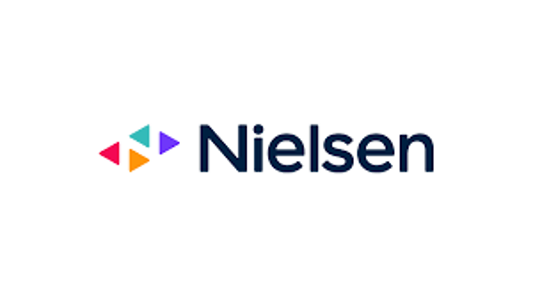“우리의 미래는 테크놀로지와 콘텐츠의 공존에 있다(Our future lies in the coexistence of technology and content)"
"테크놀로지와 콘텐츠가 만나면 'K콘텐츠는 문화가 된다.' K콘텐츠 시대의 확장성을 위해선 플랫폼과 테크놀로지 전략이 필수..K엔터테인먼트 테크놀로지 서밋
2023 K-Entertainment Technology Summit Delivers Insights into K-Content and Technology Convergence
The 2023 K-Entertainment Technology Summit, hosted by Indiana University's Institute for Korean Studies, Pukyong National University in Busan, and Direct Media Lab, unfolded at the Wavve Americas Conference Room in Los Angeles on the 20th Oct, 2023.
This innovative summit converged leading academic experts and industry leaders in K-content and digital technology, casting a spotlight on the present and future of K-entertainment, notably in high-demand markets such as the United States.
The event commenced with opening remarks from Seung Kyung Kim, Director of the Institute for Korean Studies at Indiana University, Junghwan Kim, a professor at Pukyong University, and Junghoon Han, CEO of Direct Media Lab. The summit was divided into three parts, each offering unique perspectives and insights.

지난 2023년 10월 20일 열린 ‘2023 K엔터테인먼트 테크놀로지 서밋(다이렉트미디어랩, 국립부경대학교, 인디애나대학교 한국학연구소 공동주관)’에서 참석한 전문가들이 공통으로 지적한 ‘한국 콘텐츠의 성공 조건’이다. 드라마, 영화, K팝, 웹툰 등 한국 콘텐츠의 글로벌 인기가 높아지는 가운데 우리 문화가 더 확산되고 영속성을 갖기 위한 필요충분 조건을 찾기 위한 이벤트인 '2023 K-엔터테인먼트 기술 서밋'은’ 엔터테인먼트의 산업의 심장 캘리포니아 LA에서 열렸다.
미국 인디애나대학교 한국학연구소, 부산 부경대학교, 다이렉트미디어랩이 미국 LA 웨이브 아메리카 본사에서 개최한 이 행사는 K-콘텐츠와 디지털 기술 분야의 학계 전문가와 업계 리더들이 한자리에 모여 K-엔터테인먼트의 현재와 미래를 조망하는 자리가 됐다.
K엔터테인먼트를 연구하는 학계, 엔터테인먼트를 기획하고 만드는 산업계, K콘텐츠를 글로벌 오디언스에 전달하는 테크놀로지 및 플랫폼 기업이 한 자리에 모여 머리를 맞댄 것은 이례적이다.
특히, K콘텐츠 기업들이 글로벌 진출을 위해 가장 먼저 공략하는 지역인 LA에서 관련 논의를 이어간 것은 큰 의미가 있다.
미국 영화협회(The Motion Picture Association)는 2022년 리포트에서 캘리포니아 지역에만 엔터테인먼트 일자리가 18만 6,720만 개였고 관련 업종 종사자들의 임금만 300억 달러 달한다고 밝혔다. LA지역의 경우 전체 임금의 20%가 엔터테인먼트 관련 업종에 나온다.
2023년 K엔터테크 서밋은 김승경 인디애나대학교 한국학연구소 소장, 김정환 부경대학교 교수, 한정훈 다이렉트미디어랩 대표의 개회사로 시작됐다. 행사는 3부로 나눠 진행됐다.
1부는 K팝, 드라마, 웹툰 등 K콘텐츠를 연구하는 학자들이 ‘각자가 생각하는 K콘텐츠의 성공 비결’과 ‘트렌드를 넘어 문화’를 만들기 위한 선결 과제를 발표했다. 특히, 학자들은 K콘텐츠에 대한 맹목적인 긍정만을 보내지 않았다.
2부는 K콘텐츠와 플랫폼, 테크놀로지 기업들이 ‘콘텐츠의 부가가치를 높이기 위한 그들의 기술 개발 노력과 현황’을 소개했다. 이어 3부는 학자, 기업, 언론인이 함께 앉아 ‘K콘텐츠의 위상’ 점검과 향후 발전을 위한 선결 과제 등을 논의했다.
아울러 LA발표 현장에는 기업인뿐만 아니라 LA총영사관, 미디어벤처캐피털, LA시장실 관계자, 메타버스, 웹 3.0 스타트업 관계자들이 첨석했다. 뿐만 아니라 MBC아메리카, 미주 중앙일보, 조선일보 등 동포미디어도 일제히 취재에 나섰다.
김승경 인디애나대학교 한국학연구소장은 개회사에서 “학계와 산업계가 모여 K콘텐츠의 대한 다양한 시각을 공유한 새로운 자리였다”며 “현재 미국에서도 한국 콘텐츠에 대한 영향력이 계속 커지고 있는 만큼 이와 관련한 논의가 계속이어지길 바란다”고 강조했다.
[K콘텐츠의 성공 비결은 새로움, 그리고 테크놀로지]
K팝 전문 학자 서이지(Ceadarbough Saeji, Busan National University) 교수는 K팝의 성공 비결은 '새로운' 경험을 지속적으로 제공하는 끊임 없는 혁신’이라고 강조했다.
서이지 부산대학교 교수는 디지털 시대 시각적으로 매력적인 콘텐츠를 활용, 청중을 효과적으로 사로잡고 밈이나 틱톡과 같은 '바이럴' 소재를 만들어내는 K팝의 '시각 중심(ocularcentric)' 접근 방식을 성공 비결로 언급했다.
특히, 그녀는 멀티 플랫폼(MultiPlatform)도 강점으로 꼽았다. BTS로부터 영감을 받은 웹툰 ‘7FATES:CHAKHO’을 대표 사례로 들었다. 또 아이돌이 광고나 버라이어티 등에 출연함으로써 젊은 층뿐만 아니라 다양한 팬층을 끌어들이고 있다고 설명했다. 서진이네에 출연한 BTS 등 한국 예능에 나오는 아이돌의 현상을 언급한 것이다.
하지만 세이지 교수는 비판도 제기했다. 특히, 한국 정부가 K-콘텐츠의 생산자가 아닌 지지자(Suporter)로 한 발 물러설 필요가 있다고 지적했다. 정부 개입이 지나칠 경우 이는 향후 잠재적으로 위험으로 작용할 수 있다는 경고다. 또한 영어의 남용은 K팝의 고유 매력을 희석시킬 수 있다며 서구화되지 않은 번역을 옹호했다.
오스카 수상작 '기생충' 번역가로 유명한 달시 파켓(Darcy Parquet) 부산 영화학교 교수는 스트리밍 시대에 대한 영화 산업의 적응과 팬데믹 이후 직면한 과제를 언급했다. 파켓 교수는 한국 콘텐츠의 성공 이면에는 스토리텔링의 질과 콘텐츠 제작, 대기업의 지원 등 3가지가 있다고 강조했다. 이런 3박자가 미국과 같은 취향이 까다로운 국가에서도 먹혔다는 지적이다.
그는 한국 영화의 독창성의 경우 할리우드 영향을 받았지만 분명 한국적인 접근 방식이 가미됐다고 설명했다. 한국 영화가 줄거리보다는 정서적 공감을 우선시한다고 파켓은 주장했다.
파켓 교수는 “이런 내러티브 변화는 해외 관객들에게 새롭고 매력적”이라고 설명했다. 하지만, 파켓 교수는 한국 영화 역시 스트리밍의 파고를 넘는데 어려움을 겪고 있다고 말했다. 이에 한국 영화 제작자들이 스트리밍의 확산과 변화하는 관객의 선호에 적응해야 한다고 조언했다.
오하이오주립대학(The Ohio State University) 김필호(Pil Ho Kim) 교수는 K팝의 성공 여정을 서양 음악과 한국 고유의 사운드를 조화시키며 수십년간 시행착오를 겪어온 30년 이상의 여정이라고 설명했다.
또 테크놀로지가 K팝의 확산에 큰 영향을 미쳤다고 김 교수는 언급했다. 아이돌과 그들의 이미지를 가상에서 구현하고 노래를 부르는 가상 아이돌이 대표적이라는 지적이다. 리그 오브 레전드의 인플루언서 KDA나 넷마블이 제작한 가상 걸그룹 MAVE가 그 예다.
김 대표는 “K팝이 성공을 지속하기 위해서는 케이팝의 미래에 흥미로운 지평을 제시하는 가상 아이돌 등 오디언스들에게 다른 차원의 상호 작용과 참여를 추가해야 한다”고 강조했다.
웨슬리언대학(Wesleyan University) 박자현 교수(Jahyon Park)는 웹툰과 웹툰의 글로벌 확장 가능성을 발표했다. 웹툰이 K드라마 원작으로 사용되면서 주류 문화에 더 깊숙하게 투영되고 있다고 설명했다. ‘이태원 클라스’, '무빙'과 같은 시리즈가 웹툰에서 디즈니 오리지널로 확대되는 등 웹툰 기반 스트리밍 콘텐츠가 급증하고 있음을 언급했다.
박 교수는 또 플랫폼으로서의 웹툰의 가능성을 긍정적으로 봤다. 웹툰이 미국 젊은 세대에 확산되면서 아마존, 애플과 같은 거대 기술 기업과의 협업도 가능해져 웹툰이 스트리밍 서비스와 어깨를 나란히 할 가능성도 있다는 신선한 분석도 제시했다. 스트리밍 플랫폼처럼 웹툰 플랫폼도 일반화될 수 있다는 이야기다.
또 멀티 미디어 환경에서 웹툰은 K콘텐츠의 지속적인 수익 창출을 보장하는 핵심 요소로 인식되고 있다고 강조했다. 드라마 성공작이 웹툰으로도 만들어지고 성공한 웹툰이 드라마로 제작 되는 등 웹툰은 K콘텐츠 확산을 위해 꼭 거쳐가야 하는 장르가 됐다는 것이 박 교수의 시각이다.
[K콘텐츠에도 AI가 지배, 기술의 중요성]
두 번째 세션은 스트리밍, 메타버스, AI 등 엔터테인먼트 테크놀로지 기업들이 발표에 나섰다. 특히, 2부에서는 테크놀로지가 한국 콘텐츠가 글로벌 오디언스와 만나는데 어떤 도움과 부가가치를 만들어내는 지를 보여줬다.
또 현장에서는 한인 미디어에서 아시아, 글로벌 스트리밍으로 확장되고 있는 코코와와 ODK미디어 등 K스트리밍 테크놀로지 플랫폼에 대한 소개도 이어졌다. 또 주어진 명령에 따라 텍스트, 이미지, 오디오를 만들어낸 AI는 검색, 창작 등 이미 K콘텐츠 전반에 깊숙히 접목되고 있다는 현실도 보여줬다.

구글의 엔터테인먼트 및 다문화 팀 리더 시웬 린(Hsiwen Lin)은 K-콘텐츠의 미국 내 인기와 검색 증가 트렌드를 설명했다. 한국 콘텐츠의 확산에 검색 플랫폼이 끼친 영향도 설명했다.
린 리더는 “지난 몇 년 동안 K-콘텐츠 시청률이 200% 증가하며 미국 엔터테인먼트의 주류로 부상했다”며 “K콘텐츠에 대한 시청자의 요구가 진화하고 있으며, 이에 따라 콘텐츠 검색도 증가했다”고 강조했다. 특히, 해외 콘텐츠 증가 속, 콘텐츠를 발견하는 어려움이 있다고 설명했다. 또 린은 멀티플랫폼 시청 트렌드에도 전통적인 TV는 여전히 중요하며 한국 콘텐츠도 '대형 스크린'에 적합한 고품질 작품을 제공 할 필요성가 있다고 조언했다.
K콘텐츠의 확산으로 글로벌 시장에서 비영어권 콘텐츠의 성장이 가속화되고 있다고 시웬은 주장했다.
아시아 콘텐츠에 대한 수요가 최근 60%나 증가하면서 비영어권 콘텐츠의 수요가 눈에 띄게 늘었다고 설명했다. 이런 트렌드는 넷플릭스, 아마존과 같은 거대 스트리밍 업체들이 주도하고 있다고 덧붙였다. 아울러 린은 AI시대, 원활한 콘텐츠 검색을 제공하기 위한 구글의 노력도 강조했다. 구글은 이용자들의 만족도를 높이기 위해 개인화 및 관련 콘텐츠 배포에 박차를 가지고 있다고 말했다.
글로벌 최대 K콘텐츠 스트리밍 플랫폼 코코와(KOCOWA)의 박근희 대표 겸 CPO는 플랫폼을 통한 수익 극대화 전략과 AI와 스트리밍의 중요성을 강조했다. 넷플릭스 등 글로벌 스트리밍 플랫폼들의 생존 경쟁이 펼쳐지는 환경에서 코코와는 단독 스트리밍 플랫폼과 동시에 다른 플랫폼과 협업, 번들링 상품을 만드는 등 수익에 최적화된 ‘유연한 플랫폼을 전략’을 쓴다고 박 대표는 언급했다. 이와 관련 코코와는 자신들의 플랫폼을 로쿠, 컴캐스트 등 다양한 다른 미국 콘텐츠 플랫폼으로 확장하고 있다.
물론 유연한 플랫폼 전략을 위해선 양질의 콘텐츠 제작이 우선되어야 하며 현지화 및 글로벌(영어 자막)화가 매우 필요하다고 설명했다. 박 대표는 또 “ ‘K콘텐츠는 하나의 장르’일 뿐”이라며 “목표 시청자의 공감을 이끌어낼 수 있는 콘텐츠를 지속적으로 선보여야 한다”고 덧붙였다.
최근 AI검색 ‘AI키토크’를 도입한 배경에 대해서도 설명했다. 박 대표는 “콘텐츠가 증가함에 따라 AI가 추천하는 AI 큐레이팅 서비스가 고객의 몰입도를 증가시켜줄 수 있다”고 말했다. 이와 관련 코코와는 사용자가 자신의 취향에 맞는 콘텐츠를 쉽게 발견해, 더 많은 콘텐츠를 볼 수 있도록 유도하고 있다.
ODK미디어(온디맨드코리아)는 아시아 최대 스트리밍 서비스를 지향한다. 이런 목표에도 엔터테인먼트 테크놀로지가 깊숙히 자리 잡고 있다. 현장 발표에 나선 이준석 ODK 수석 부대표는 아시아계 미국인 시청자의 중요성과 스트리밍 경험의 개인화에 대해 강조했다.
발표에 나선 이준석 ODK부대표는 K콘텐츠 도달율을 높이기 위해 스트리밍, FAST, 스마트TV, 웹, 모바일 등 다양한 플랫폼을 활용하고 있다고 강조했다. 이런 멀티 플랫폼 전략은 숨어 있는 틈새 시청자를 공략하기에도 적합하다. 멀티 플랫폼을 통해 개인화를 시도하고 있는 것이다.
이 부대표는 “이러한 개인화야말로 경쟁이 치열한 스트리밍 환경에서 살아남을 수 있는 열쇠”라고 언급했다. 이와 관련 아시아 스트리밍 플랫폼으로 나아가는 는 ODK 미디어의 사례도 논의되었다. ODK는 다양한 아시아 콘텐츠 제공업체와 협력을 통해 플랫폼 간 콘텐츠 배포를 촉진하고 있다.
이 부대표는 “ODK 미디어의 뿌리는 한국인을 비롯한 아시아계 미국 이민자와 가족들에게서 찾을 수 있다”며 “한국 콘텐츠의 세계화에 있어 한인들의 역할이 매우 크고 한인을 중심으로 아시아 시장을 공략할 것”이라고 설명했다.
K콘텐츠의 확산에 가장 필요한 것은 언어다.
한국 말을 쓰고 이해하는 층이 많아져야 콘텐츠 소비자 증가한다. 비상교육(Visang education)은 온라인 한국어 교육 플랫폼 마스터케이를 현장에서 선보였다. 비상교육은 최첨단 기술과 맞춤형 교육 콘텐츠를 결합하여 학습자의 변화하는 요구를 충족시키기 위해 설계된 멀티미디어 플랫폼 '마스터케이(MasterK)' 한국어 프로그램을 선보였다.
이 프로그램은 온라인 커뮤니티와 강의실, 멀티미디어 플랫폼, AI 기능을 통합했다. 또 글로벌 시장 공략을 위해 다양한 언어에 능통한 전문 자격증을 보유한 교사들로 구성된 팀도 구성했다. 현장 발표를 맡았던 김현섭 비상교육 CP는 “특히 이 프로그램은 ‘개인 맞춤형 교육’이 가능하다는 것이 특징”이라며 “다양한 학교나 국가 현장에서 플랫폼에 쉽게 액세스해, 현지 실정에 맞게 학습 진도와 수준을 맞춤화할 수 있다고 설명했다.
AI는 이제 엔터테인먼트 시장 대세다.
드라마나 예능 제작에도 예외가 아니다. 버라이어티는 엔터테인먼트가 교육과 함께 AI가 가장 빨리 스며드는 분야 중 하나로 꼽았다. AI뮤직 스타트업 포자랩스(Pozalabs)는 ‘AI가 만든 음악을 직접 들려줘 참석자들의 주목을 많이 받았다.
포자랩스 김태현 부대표는 발표에서 저작권 걱정 없는 음악 제작 과정을 간소화하는 과정을 직접 선보였다. 또 자신들의 기술이 K콘텐츠의 부가 가치 향상에 어떤 도움을 줄 수 있는 지 소개했다. 포자랩스는 사용자가 5분 만에 고품질의 음악을 제작할 수 있는 간소화된 음악 창작 과정을 개발했으며, 음악과 관련된 복잡한 라이선스 비용과 절차가 필요 없는 원스텝 라이선스 프로세스를 제공한다.
김 부대표는 발표에서 “기술이 인간의 창의성을 대체하는 것이 아니라 새로운 디지털 환경에서 아티스트 및 작곡가와 협업하여 수익을 극대화할 수 있는 환경을 조성하는 것이 목표”라고 강조했다. 김 부대표는 AI가 만든 짦은 음악과 이를 이용해 새로운 음악을 만드는 과정을 소개했는데 ‘인간 수준에 가까운 완성도’로 서밋 참석자들의 큰 주목을 받았다.
포자랩스의 목표는 창의성을 AI에 맡기는 것이 아니다. 김 부대표는 “ 음악 창작의 특정 측면을 AI를 통해 자동화해 반복적인 작업을 제거한다”며 “이를 통해 창작자, 뮤지션, 작곡가 모두 창의성에 집중하고 영감을 얻을 수 있다”고 설명했다. 쓸데 없는 과정을 줄이고 창작에 더 신경쓸 수 있는 환경을 만들 겠다는 이야기다.
메타버스와 디지털 인플루언서는 K콘텐츠의 성공 가능성을 디지털 공간으로 확장한다.
특히, K인플루언스 의 성공을 위해서는 3차원 가상 공간에서 몰입도 있는 경험을 재현해줄 수 있는 기술이 급선무다. K인플루언서의 확산을 위해 노력하는 테크놀로지가 기업도 현장에 참석했다.
디지털 인플루언서 제작 서비스 스윔(SWIM)의 창업자이자 최고 크리에이티브 책임자(CCO)인 개탄 에도 본 뮤럴트(Gaetan Edo Von Muralt)는 마케팅과 브랜드 구축의 새로운 시대를 선도하고 있다.
그는 엔터테인먼트 테크놀로지 서밋에서 “기업이 디지털 마케팅에서 성공하려면 브랜드 이미지에 적합한 인플루언서를 선정해야 한다”는 점을 강조하며 발표를 시작했다.
하지만, 인간 인플루언서는 간혹 통제가 불가능할 때가 있다. 이에 스윔은 AI와 3D 기술을 활용해, 인플루언서 캠페인 비용을 줄이고 현실 세계와 가상 세계에 모두 존재할 수 있는 브랜드 맞춤형 AI 인플루언서 ‘이아( AH)’를 만들었다.
뮤럴트 창업주는 스윔의 자체 AI 인플루언서인 이야(IAH)를 현지 참석자들에게 소개했다. 그는 이야를 통해 B2B마켓에서 집중하겠다며 한국 기업들과의 협업도 원한다고 설명했다.
그는 “개인화된 AI 인플루언서를 통해 디지털 및 실제 상품을 홍보하고 브랜드의 잠재 고객과 진실한 관계를 형성하는 것이 중요하다”며 “이는 마케팅과 관련한 실패 위험을 최소화하고 수익 잠재력을 극대화할 수 있는 방법”이라고 덧붙였다.

[K콘텐츠와 플랫폼은 늘 변화하고 만나야 한다]
3부에서는 다양한 관점의 토론이 이어졌다. 토론회에는 1부와 2부 주제 발표를 맡았던 학자들과 현장 참석자들의 온오프라인으로 모였다. 토론회는 진화하는 K콘텐츠를 위한 변화하는 플랫폼이 필요하다는 의견들이 많았다.
글로벌 미디어 환경이 스트리밍, 메타버스, AI 등으로 진화하는 가운데 K-콘텐츠는 여전히 선두를 지켜려면 플랫폼에 대한 이해와 활용이 매우 중요하다는 논의 등이 이어졌다. 이런 성장과 혁신을 통해 K콘텐츠가 한 단계 더 발전할 수 있다는데 패널들의 생각이 모였다.
서밋을 공동 주최한 김정환 부경대 교수(휴먼ICT융합전공)는 “K-컬쳐의 성장을 복합적인 관점에서 확인할 수 있어 의미 있는 자리였다. 앞으로도 학계와 업계, 국내 기업과 글로벌 기업, 스타트업이 함께 어울려 논의하고 고민할 수 있는 자리를 만들겠다.”라고 밝혔다.
다이렉트미디어랩 한정훈 대표는 특히, 글로벌 시청자들에게 한국 콘텐츠와 문화의 가치를 증폭시키는 데 있어 기술 플랫폼의 '결정적' 역할을 강조했다.
그는 “'물리적인 것에서 디지털로의 전환'은 글로벌 시장에서 한국 콘텐츠의 지속적인 성공을 보장하는 중추적 요소”라고 지적했다.
한국 기업의 글로벌 시장 진출과 청년들의 해외 취업 멘토링에 힘쓰고 있는 고삼석 동국대학교 석좌교수(전 방통위 상임위원)는 현장을 방문해 “K-엔터테크의 현주소에 대한 진단과 각 기업의 사례 발표가 인상 깊었다. 미디어와 콘텐츠 비즈니스에 기술을 접목하는 것 자체가 큰 혁신”이라며 “일부 기술은 콘텐츠 비즈니스의 판도를 바꿀 수 있는 잠재력을 가지고 있다”고 말했다.
고 교수는 또 “ K-엔터테크 서밋과 같은 형태로 지식과 경험을 공유할 수 있는 기회가 더욱 활발해지길 바란다”며 “또한 기업 간, 국가 간 교류와 협력이 확대되기를 기대한다”고 덧붙였다.

[지상파 플랫폼의 존재가치 ‘K콘텐츠의 대중화’의 중추]
한편, 3부에서는 KBS아메리카(신경균 대표), MBC아메리카(권석 대표), SBS인터내셔널(김문진 이사) 등 K콘텐츠의 글로벌 유통에 중추적인 역할을 담당해 온 K스테이션 관계자들도 참석했다.
북미 한인 미디어 시장도 스트리밍의 공세에 힘들어 하고 있다. 드라마, 예능의 콘텐츠 유통 주도권은 스트리밍으로 넘어간 상태다.

하지만, K스테이션(K-Station) 들은 케이블TV와 지역 지상파를 통해 ‘K콘텐츠의 대중화’에 힘쓰고 있다. 또 뉴미디어에 접근하기 어려운 노령층과 저소득 계층을 위해 클래식한 방식의 TV유통 방식을 여전히 고수하고 있다. 클래식 K콘텐츠들이 클래식 플랫폼을 통해 한인들에게 공급되고 있는 것이다.
K스테이션 관계자들은 현장에서 “스트리밍 시대, K콘텐츠 공급 주도권이 서서히 디지털 플랫폼으로 넘어가고 있다”며 “하지만, 스테이션들은 중장년 한인 오디언스를 위한 시청 복지, 오리지널 북미 뉴스 보도 등 한국 교민에게는 없어서는 안될 핵심적 역할을 여전히 하고 있다”고 강조했다. 실제, 대형 재난 상황, LA시장 선거 등 주요 사회 이슈들의 경우 여전히 K스테이션들이 많은 콘텐츠를 만들고 있다.
북미 지역에 진출한 한국 지상파 방송들은 수익 다학화를 위해서도 노력 중이다. 이른바 미디어 커머스다. MBC아메리카는 '복면가왕' 포맷 판매와 함께, 실시간 홈쇼핑 채널도 방송 중이다. 사옥 내에 상품 판매장을 만들어 고객과의 접점도 강화하고 있다.
2023 K-Entertainment Technology Summit Delivers Insights into K-Content and Technology Convergence
The 2023 K-Entertainment Technology Summit, hosted by Indiana University's Institute for Korean Studies, Pukyong National University in Busan, and Direct Media Lab, unfolded at the LA Wavve American Conference Room in Los Angeles on the 20th. This innovative summit converged leading academic experts and industry leaders in K-content and digital technology, casting a spotlight on the present and future of K-entertainment, notably in high-demand markets such as the United States.
The event commenced with opening remarks from Seung Kyung Kim, Director of the Institute for Korean Studies at Indiana University, Junghwan Kim, a professor at Pukyong University, and Junghoon Han, CEO of Direct Media Lab. The summit was divided into three parts, each offering unique perspectives and insights.
Part one consisted of an online talk segment featuring prominent academics.
CedarBough T. Saeji (Professor, Busan National University) — K-pop scholar CedarBough Saeji from Pusan National University enlightened the audience on the unending innovation within K-pop, known for its ability to consistently offer a “new” experience. Saeji emphasized the “ocularcentric” approach in K-pop, which leverages visually appealing content tailored for the digital age that can effectively captivate audiences and create ‘viral’ material such as memes or TikToks. Saeji also discussed K-pop’s multi-platform presence, including webtoons inspired by K-pop groups, such as HYBE’s BTS-inspired webtoon, “7FATES:CHAKHO.” She also emphasized the ability of K-pop to draw in a diverse range of fans, not just younger, as older-generation idols maintain popularity among older fans and are simultaneously re-introduced to new audiences via marketing campaigns, variety shows, and so forth. However, Saeiji noted that the Korean government needs to step back as a supporter, not a producer of K-content, which could become potentially dangerous in the future. She also cautioned against the overuse of English, which could dilute K-pop’s unique charm, advocating for translation without westernization.
Darcy Paquet (Professor, Busan Asian Film School) — Darcy Parquet, a professor and translator renowned for his translation of Oscar-winning “Parasite,” emphasized that Korean content meets the basic criteria for international success on two fundamental fronts: storytelling quality and corporate backing for content production and promotion. Alongside its superior storytelling abilities, South Korea is an economically stable global power, which allows for adequate financial support for filmmaking, essential in challenging markets like the United States. He describes the uniqueness of Korean films as being influenced by Hollywood yet unmistakably Korean in their approach, which he ascribed to the prioritization of emotional resonance, or “high-points” over plot. Such a shift in the narrative structure is new and captivating for international audiences. However, Parquet notes that filmmakers in Korea are facing challenges post-pandemic in adapting to changing audience preferences, with increasing focus on over-the-top (OTT) streaming content over the traditional cinematic experience.
Pil Ho Kim (Professor, Ohio State University) — Professor Pil Ho Kim from Ohio State University unveiled the fascinating journey of K-pop’s success through decades of trial and error, which can be traced back to over 30 years or more of experimentation, balancing Western musical influence with Korea’s own unique sound. He also noted the impact of tech companies, such as gaming companies, in the evolution of K-pop, exemplified by the phenomenon of KDA for League of Legends, or virtual girl group MAVE produced by Korean gaming company Netmarble. Kim emphasized that to continue its success, the K-pop industry must seamlessly incorporate technology into the creation of virtual idols, a concept that presents an exciting frontier for K-pop’s future, adding another layer of interaction and engagement to the genre’s already vibrant fanbase.
Jahyon Park (Professor, Wesleyan University) — Professor Jahyon Park of Weslyan University discussed Webtoons and their role in the global K-content market. Her current research delves into the emotional connections that webtoons foster among their male audiences via online communication like comment sections. Aside from this, Park also highlighted the recent success of webtoons in the United States through strategic partnerships, such as Naver Webtoon and DC Comics. Additionally, she noted the surge in webtoon-based streaming content, with series like Kang Full’s “Moving” making the leap from webtoon to an award-winning Disney original series. Other examples include Netflix’s “Sweet Home” and “Itaewon Class.” The emergence of webtoons in the global market also offers potential collaborations with tech giants such as Amazon and Apple, potentially placing webtoons alongside streaming services. Park recognizes webtoons as a critical component in the ever-evolving multimedia digital landscape, ensuring the continuous creation of new K-content.
The second session witnessed industry leaders offering insights into K-content trends and emerging technologies such as AI.
Hsiwen Lin (Business Development, Entertainment & Multicultural Partnerships at Google) — Hsiwen Lin, leader of Google’s entertainment and multicultural team, outlined the remarkable 200% increase in K-content viewership over the past couple years, propelling it into the mainstream of American entertainment. Lin emphasized that the viewers’ demands are evolving, with an increasing need for streamlined content discovery. She highlighted the challenges associated with discovering content amidst a multitude of options and the growing appetite for international content. Additionally, Lin noted that even in the shift to multiplatform content-viewing, the traditional television format remains significant, indicating the need to deliver high-quality non-English or international content fit for the ‘big screen.’ The growth of such non-English content, especially the global market, was discussed, showing a remarkable 60% increase in demand, with a new substantial demand for Asian contents by younger audiences. Streaming giants like Netflix and Amazon have spearheaded this transformation, and Lin emphasizes Google’s role in spurring key elements of personalization and relevant content distribution to stay ahead in a saturated market.
KunHee Park, KOCOWA — KunHee Park, CEO & CPO of KOCOWA, shared his insights on the competitive landscape of K-content. KOCOWA, streaming platform and subsidiary of Wavve America, emphasized strategies to maximize revenue through bundling offerings and establishing independent channels. Key takeaways included the struggle for content, with various platforms trying to acquire original content in the shadow of global streaming giants like Netflix. Therefore, the need for localization and globalization that can emphasize the creation of high-quality content and accurate communication was underscored. Park noted that K-content is just one genre within the broader streaming market, and it must continually justify its place in the lineup by offering content that resonates with the target audience. To aid in this, KOCOWA has established strong relationships with Korean content providers and studios to extend its service packages to various U.S. platforms, including Roku and Comcast. Park described how partner distribution networks and AI curating services play a crucial role in content delivery, which KOCOWA is developing to help users easily discover content among the plethora of options — personalized exactly to one’s taste for an increased experience.
ODK Media — ODK Media, an Asian streaming service, spotlighted the significant role of Asian American viewers in the U.S. streaming market and their commitment to personalization. The presentation highlighted ODK Media’s commitment to providing a diverse range of content on their platform — not limited to Korean offerings — to broaden viewer reach and target niche audiences. It was noted that such personalization was the key to survival in the highly competitive streaming landscape. ODK Media’s collaboration with various Asian content providers was discussed, emphasizing the facilitation of content distribution across platforms. The roots of ODK Media are stated to be traced back to Korean and other Asian immigrants and families in the U.S., reflecting the profound role of Korean Americans in the globalization of Korean content.
Visang Education (masterK) — Visang Education presented its ‘masterK’ Korean language program, an innovative education platform designed to address the evolving needs of learners, combining cutting-edge technology with tailored instructional content. The program ushers in a new wave of learning in Korean language education post-pandemic with the adoption of online communities and classrooms, multimedia platforms, and AI integration. MasterK boasts a team of professional, licensed teachers proficient in numerous languages for global customers. What especially sets the program apart is its customizable nature. Independent organizations can readily access the platform and use it to tailor their educational experience. MasterK harnesses the power of e-learning, providing a repository of recorded lessons students can access at their convenience. This format ensures flexibility in learning, empowering students to study at their own pace. For educators, masterK provides a treasure trove of resources such as technology that allows teachers to use students’ self-study records to create personalized high-quality learning. With the global interest in the Korean language, the platform is designed to enable globally accessible education via smart classes and hybrid learning, as well as AI writing and speaking tools. It was also noted that the program is extending its reach beyond conventional education and being employed in government initiatives and training tutors.
Kim Taehyun (Vice President, Pozalabs) — Pozalabs, a pioneering Seoul-based AI music generation startup, is spearheading a revolution in the world of music composition and creation. Vice President Kim Taehyun spoke on how Pozalabs offers a range of groundbreaking solutions to the creation of copyright-free music. The company has developed a streamlined process that allows users to produce high-quality music in just five minutes, as well as a one-step grant process that eliminates the need for complex licensing fees and processes associated with traditional music. Kim emphasizes that they are not aiming to replace human creativity but to create an environment where technology collaborates with artists and composers to maximize profits in the new digital landscape. He breaks down their model and discusses how the company has created high-quality data sets that are easy to deconstruct and reassemble into AI models to ensure the generated music is both exceptional and versatile. Kim demonstrated this through the presentation of a short piece of music created by their software. He noted that by automating certain aspects of music creation, Pozalabs eliminates repetitive tasks that allows creators, musicians and composers alike to focus on creativity and gain inspiration.
Gaetan Edo Von Muralt (Founder, SWIM) — Gaetan Edo Von Muralt, founder and Chief Creative Officer of SWIM, a digital influencer creation service, is at the forefront of a new era in marketing and brand building. He began the presentation with an emphasis on the need for brands to select the right influencer to be the image of their brand. This selection process goes beyond just the number of followers and also introduces a variety of issues, as companies lack security and control over influencers. Therefore, by leveraging AI and 3D technology, SWIM offers a cost-effective and controlled solution over influencer campaigns, creating AI influencers customized to the brand that can exist in both real and virtual worlds. Muralt introduces IAH, SWIM’s own AI influencer, which he describes as a “terrestrial cultural addict.” Through this he showcased how the creation of a personalized AI influencer can promote both digital and physical goods and create authentic connections with brands and their audiences to mitigate risk and maximize profit potential in the future of marketing.
The third part of the summit concluded with a discussion and Q&A session, allowing participants to delve into the global state of the K-content industry and its future success.
These insights shed light on the evolving nature of K-content and the strategies employed by industry leaders to capture diverse audiences. As the global streaming landscape continues to evolve, K-content remains at the forefront, poised for further growth and innovation.
DirectMediaLab CEO Junghoon Han emphasized the "crucial" role of technology platforms in amplifying the value of Korean content and culture, particularly when reaching global audiences. The "shift from physical to digital" stands as a pivotal factor in ensuring Korea's enduring success in the global market.
Dr. Samseog Ko, a distinguished professor at Dongguk University (formerly commissioner of Korea communications Commission, KCC) who is committed to helping Korean companies expand the global market and mentoring young people for overseas employment, visited the event and said, "I was impressed by the diagnosis of the current state of K-Entertainment technology and the case presentations of each company. The integration of technology into the media and content business is a great innovation in itself, and some of the technologies have the potential to change the game of the content business."
"I hope that opportunities to share knowledge and experience in the form of the K-Entrepreneurship Summit will become more active," said Ko. "I also hope that exchanges and cooperation between companies and countries will expand."
뉴스레터를 구독하세요.
지금 뉴스레터를 구독하세요.






![[프리미엄 리포트] 미국 케이블TV 2025, 변화와 미래 전략](https://storage.googleapis.com/cdn.media.bluedot.so/bluedot.directmedialab/2025/05/vj931j_202505270106.png)




